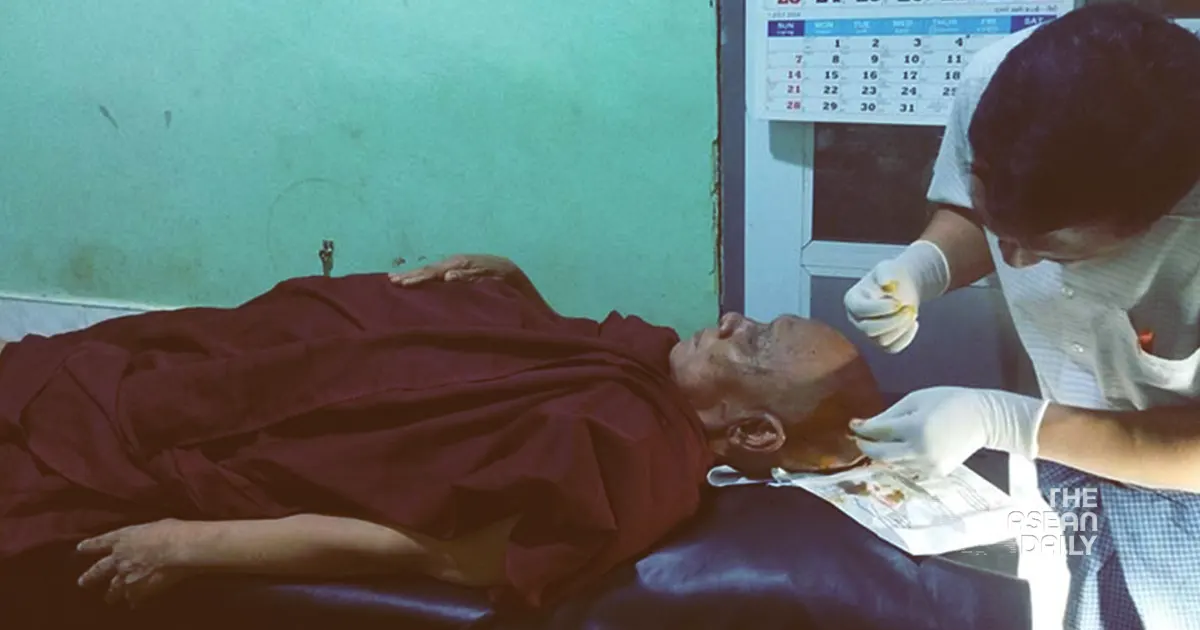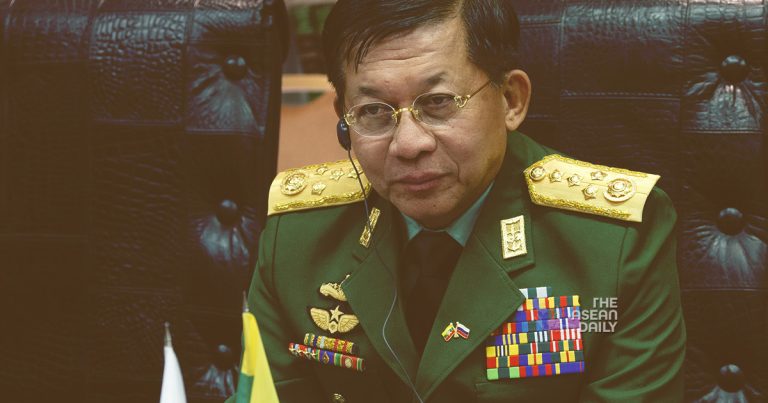26-6-2024 (YANGON) In a rare display of contrition, the chief of Myanmar’s ruling military junta, Min Aung Hlaing, has issued an apology following the killing of a prominent Buddhist abbot, Sayadaw Bhaddanta Munindabhivamsa. The 78-year-old revered figure, known for his teachings on Buddhism and his vocal opposition to the 2021 coup, was shot dead on June 19 while traveling by car through the central Mandalay region.
Initially, junta-controlled media blamed opponents of the coup for the killing, but a senior monk who witnessed the incident soon revealed that security forces were responsible for the tragic event. As the accusation went viral on social media, the junta announced an investigation into the incident.
In a letter read out at the abbot’s monastery on Monday, Min Aung Hlaing expressed profound regret over the loss of Sayadaw Bhaddanta Munindabhivamsa. “We are extremely heartbroken for losing Sayadaw Bhaddanta Munindabhivamsa,” the letter stated. “We would like to give our sincere apology for this case.”
According to the letter, the car carrying the abbot had no religious markings and failed to slow down at a checkpoint, prompting junta troops to open fire. The junta chief assured that a thorough investigation would be conducted, and action would be taken based on the facts uncovered.

The abbot’s funeral is scheduled to take place on Thursday, marking a somber occasion for the Buddhist community and those who revered him.
The military has long sought to portray itself as a protector of Buddhist identity, the majority religion in Myanmar. However, since seizing power in 2021, it has arrested and jailed countless locals and foreigners accused of “harming” Buddhism, as part of its sweeping crackdown on dissent that has seen thousands imprisoned or killed, according to local monitoring groups.
Ironically, the clergy has also been at the forefront of political protests against the junta’s rule. Massive demonstrations sparked by fuel price hikes in 2007 were led by monks, and the clergy also mobilized relief efforts after the devastating Cyclone Nargis in 2008, highlighting the inaction of the former military regime.
The junta chief’s rare apology comes as a recognition of the gravity of the situation and the outrage sparked by the killing of a respected religious figure. It remains to be seen whether this gesture will be accompanied by tangible actions to address the ongoing human rights violations and restore democratic norms in the troubled nation.




